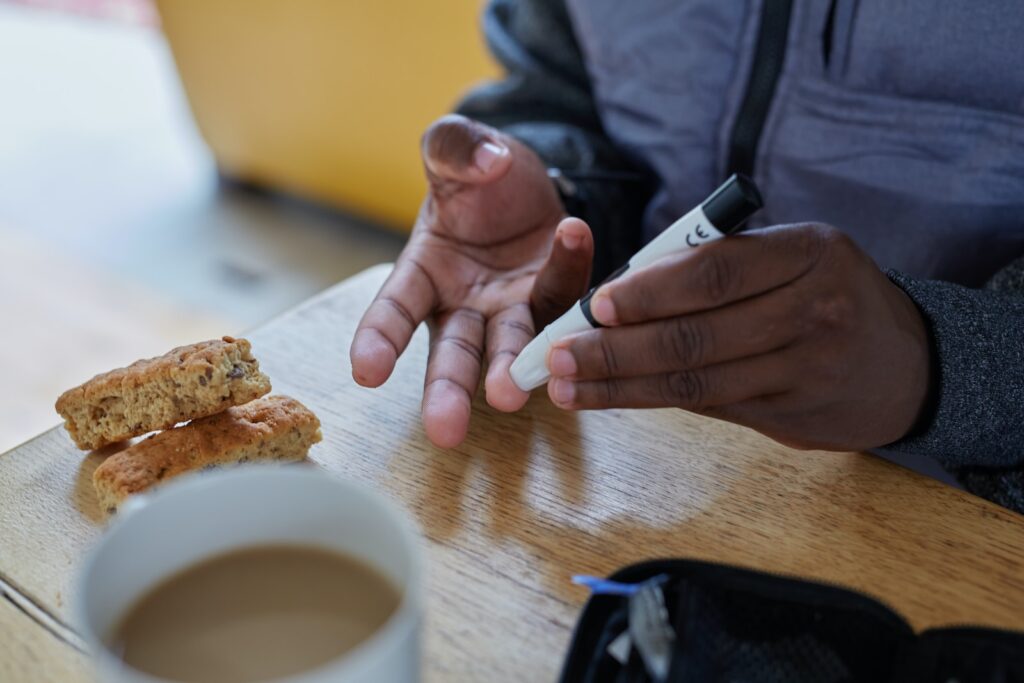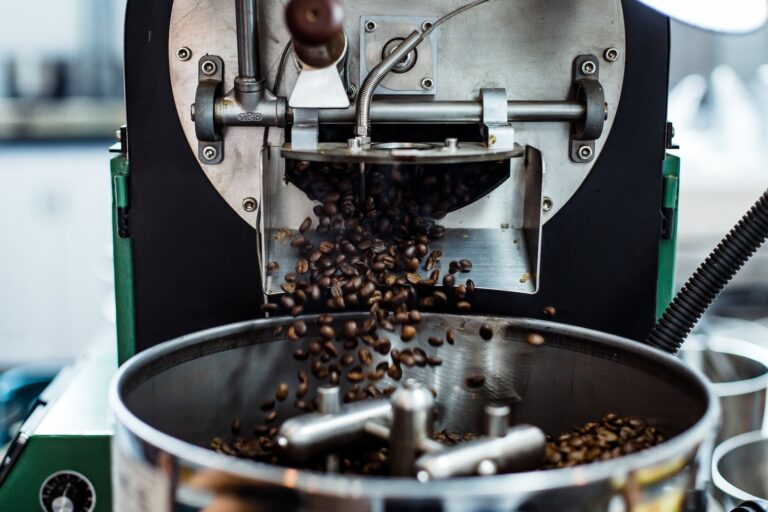Are you a coffee lover battling diabetes, unsure about how this beloved beverage fits into your daily routine? Look no further! In this blog post, we will delve into the fascinating connection between coffee and diabetes. Whether you’re seeking answers or simply navigating the world of diabetic-friendly beverages, we’ve got you covered with everything you need to know.
So grab your favorite mug and get ready for an enlightening journey that combines the aroma of freshly brewed coffee with essential knowledge on managing diabetes effectively. Let’s brew up some clarity together!
Introduction: The Link Between Coffee and Diabetes

Diabetes is a chronic condition that affects millions of people worldwide. It occurs when the body is unable to use or produce enough insulin, resulting in high levels of glucose (sugar) in the blood. There are two main types of diabetes – type 1 and type 2, with the latter being more prevalent.
Coffee is one of the most widely consumed beverages globally, with an estimated 2.25 billion cups consumed every day. It has become an integral part of daily routines for many people, whether it’s for its taste, energy-boosting effects or as a social ritual.
But what if we told you that your daily cup(s) of coffee could have an impact on your risk for developing diabetes? Studies have shown that there may indeed be a link between coffee consumption and diabetes risk, although the findings are not conclusive and further research is needed.
In this section, we will delve into the evidence behind this potential association and explore how coffee may affect our bodies’ ability to regulate blood sugar levels. Let’s take a look at what you need to know about the link between coffee and diabetes.
The Impact of Caffeine on Insulin Sensitivity
One component of coffee that has received much attention in relation to diabetes risk is caffeine. Found naturally in coffee beans as well as other sources like tea and chocolate, caffeine is known for its stimulating effects on our bodies and minds.
But beyond keeping us alert and focused, caffeine can also have an impact on our insulin sensitivity. Insulin is a hormone produced by the pancreas that helps regulate blood sugar levels by facilitating the absorption of glucose into our cells.
Research has shown that caffeine may decrease insulin sensitivity, meaning that our cells are less responsive to insulin’s effects. This could lead to higher levels of glucose in the blood, which is a hallmark of diabetes.
One study published in the American Diabetes Association’s journal Diabetes Care found that higher caffeine intake was associated with increased insulin resistance in participants with type 1 diabetes. Interestingly, this effect was not observed in participants with type 2 diabetes.
While this evidence suggests a potential link between caffeine and insulin sensitivity, it should be noted that more research is needed to confirm these findings and understand the mechanisms behind them.
Understanding Diabetes: Types and Causes
Diabetes is a chronic condition that affects millions of people worldwide and has become a growing concern in the health community. It occurs when the body is unable to properly regulate blood sugar levels, leading to high amounts of glucose in the blood. There are two main types of diabetes: type 1 and type 2.
Type 1 diabetes, also known as insulin-dependent diabetes, is an autoimmune disease in which the body’s immune system attacks and destroys the cells in the pancreas responsible for producing insulin. Insulin is a hormone that helps transport glucose from the bloodstream into cells for energy. Without enough insulin, glucose builds up in the blood, resulting in high blood sugar levels.
On the other hand, type 2 diabetes, also known as non-insulin dependent diabetes or adult-onset diabetes, occurs when the body becomes resistant to insulin or does not produce enough insulin to regulate blood sugar levels effectively. This type of diabetes is often associated with lifestyle factors such as obesity, physical inactivity, and poor diet choices.
While genetics can play a role in both types of diabetes, lifestyle factors have been found to be significant contributors as well. For instance, individuals who have a family history of type 2 diabetes but maintain healthy habits are less likely to develop it compared to those with unhealthy lifestyle habits.
Effects of Coffee on Blood Sugar Levels
Coffee is one of the most consumed beverages in the world and has become an essential part of daily routine for many individuals. However, for people with diabetes or those at risk for developing it, there may be concerns about how coffee can affect blood sugar levels.
The effects of coffee on blood sugar levels can be complex and may vary from person to person. A lot depends on individual sensitivity to caffeine, the type and amount of coffee consumed, as well as other lifestyle factors such as diet and exercise.
Caffeine, which is found in varying amounts in coffee, has been linked to both increases and decreases in blood sugar levels. Some studies suggest that caffeine intake can cause a temporary spike in blood glucose levels by stimulating the release of hormones like adrenaline, which can increase insulin resistance. This effect is more pronounced in individuals who are not regular coffee drinkers or have sensitivity to caffeine.
On the other hand, some researchers suggest that consuming caffeine regularly (3-4 cups/day) may help improve insulin sensitivity over time. Insulin is a hormone responsible for regulating blood sugar levels and promoting glucose uptake into cells. By making cells more responsive to insulin’s action, caffeine intake may lead to a reduction in fasting blood glucose levels over time.
However, it’s important to note that these potential benefits are seen when consuming plain black coffee without any added sugars or creamers. Coffee drinks loaded with added sugars and syrups can significantly impact blood sugar levels due to their high carbohydrate content.
Benefits of Drinking Coffee for Diabetics
Coffee is one of the most popular beverages in the world and has been a significant part of many people’s daily routines. However, for those with diabetes, coffee consumption may be a cause for concern. The good news is that recent research has shown that coffee can provide numerous benefits for individuals living with diabetes.
Here are some of the key benefits of drinking coffee for diabetics:
1] Improved Insulin Sensitivity: People with type 2 diabetes often struggle with insulin resistance, which means their cells have a reduced ability to respond to insulin hormone properly. Studies have found that regular coffee consumption can help improve insulin sensitivity, making it easier for the body to regulate blood sugar levels and reducing the risk of developing type 2 diabetes.
2] Lower Risk of Type 2 Diabetes: Several studies have also shown that there is an inverse relationship between coffee consumption and the risk of developing type 2 diabetes. This means that the more coffee a person drinks, the lower their chances are of developing this form of diabetes.
3] Antioxidant Properties: Coffee contains high levels of antioxidants, such as chlorogenic acid and quinines, which can help to protect cells from damage caused by unstable molecules called free radicals. These antioxidants can be especially beneficial for individuals with diabetes as they are at a higher risk of oxidative stress leading to complications like heart disease and nerve damage.
Tips for Incorporating Coffee into a Diabetic Diet
For many people, coffee is an essential part of their daily routine. However, if you have diabetes, you may be wondering how coffee can fit into your diet. The good news is that with proper planning and moderation, coffee can be safely enjoyed as part of a healthy diabetic diet.
Here are some tips to help you incorporate coffee into your diabetic meal plan:
1] Talk to your doctor: Before making any changes to your diet or lifestyle, it’s important to consult with your healthcare provider. This is especially crucial if you have diabetes as your doctor will be able to advise you on the best course of action based on your individual needs and health history.
2] Limit caffeine intake: Most people know that coffee contains caffeine – a stimulant that can increase heart rate and blood pressure. For individuals with diabetes, too much caffeine can lead to higher blood sugar levels and interfere with insulin sensitivity. It’s recommended to limit caffeine intake to no more than 400 mg per day (equivalent to about 4 cups of brewed coffee).
3] Choose the right kind of coffee: Plain black drip or brewed coffee has been found to have minimal effects on blood sugar levels compared to other types of drinks such as lattes or sugary flavored beverages like mochas or frappuccinos. Opt for unsweetened options whenever possible.
Alternatives to Traditional Coffee Drinks
Coffee is a staple in many people’s daily routines, but for those managing diabetes, the traditional coffee options may not be suitable. Fortunately, there are alternative coffee drinks that can provide a delicious and healthy pick-me-up without negatively affecting blood sugar levels.
1] Herbal Teas
For those looking for a caffeine-free option, herbal teas are a great alternative to traditional coffee drinks. They come in a variety of flavors such as chamomile, mint, and ginger, providing a refreshing and soothing beverage choice. Some herbal teas also have additional health benefits such as anti-inflammatory properties or aiding digestion.
2] Green Tea
Green tea has gained popularity in recent years due to its numerous health benefits, including potential blood sugar lowering effects. It contains powerful antioxidants called polyphenols which help regulate glucose levels and improve insulin sensitivity. Adding some lemon or honey can provide some sweetness without spiking your blood sugar levels.
3] Matcha Latte
Derived from ground green tea leaves, matcha is packed with nutrients and provides sustained energy without the crash associated with traditional coffee drinks. Its natural sweetness eliminates the need for added sugars or sweeteners, making it an ideal choice for those with diabetes.
4] Cinnamon Coffee
Cinnamon has been shown to have positive effects on blood sugar levels by improving insulin sensitivity and reducing glucose absorption after meals. You can simply sprinkle cinnamon powder on top of your regular cup of coffee or try brewing it together for added flavor.
Conclusion: Finding Balance with Coffee and Diabetes
In this blog article, we have discussed the relationships between coffee and diabetes, including both potential benefits and risks. We know that coffee consumption is deeply ingrained in our daily lives, and for many of us, it’s an irreplaceable part of our morning routine. For people living with diabetes, however, the relationship between coffee and blood sugar levels can be a bit more complex.
While there is no single answer that applies to everyone when it comes to balancing coffee intake with diabetes management, we hope that this article has provided some helpful information to guide you in finding your own balance.







